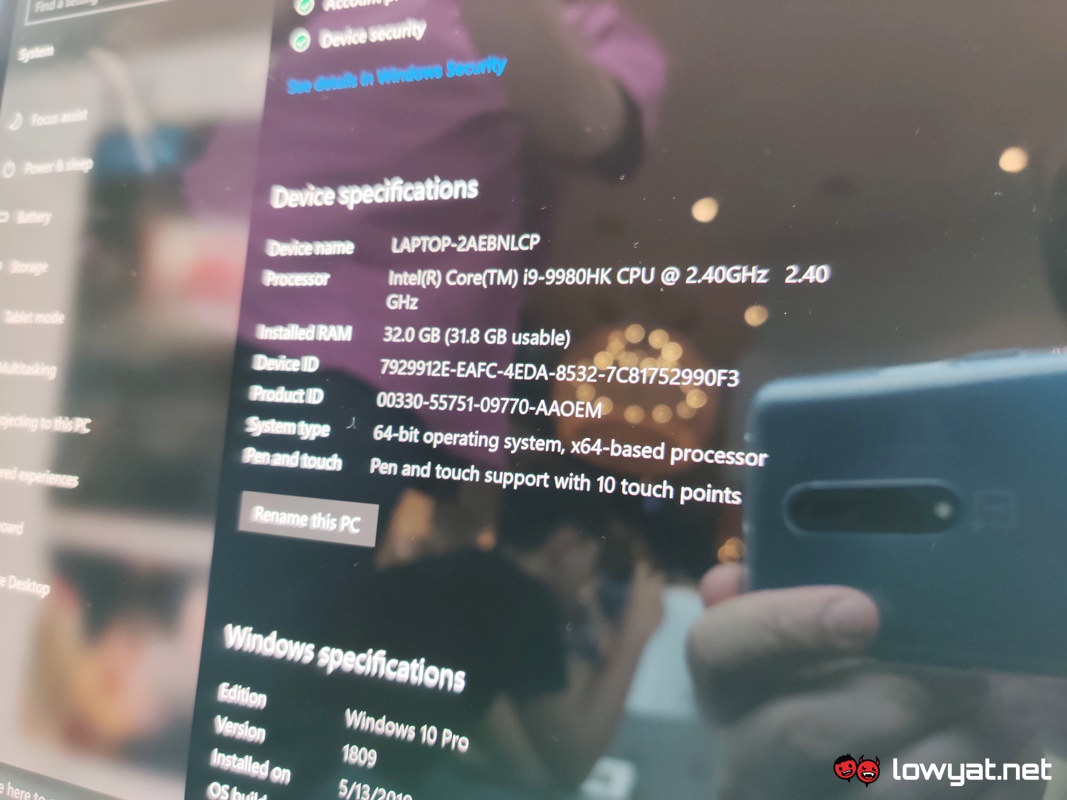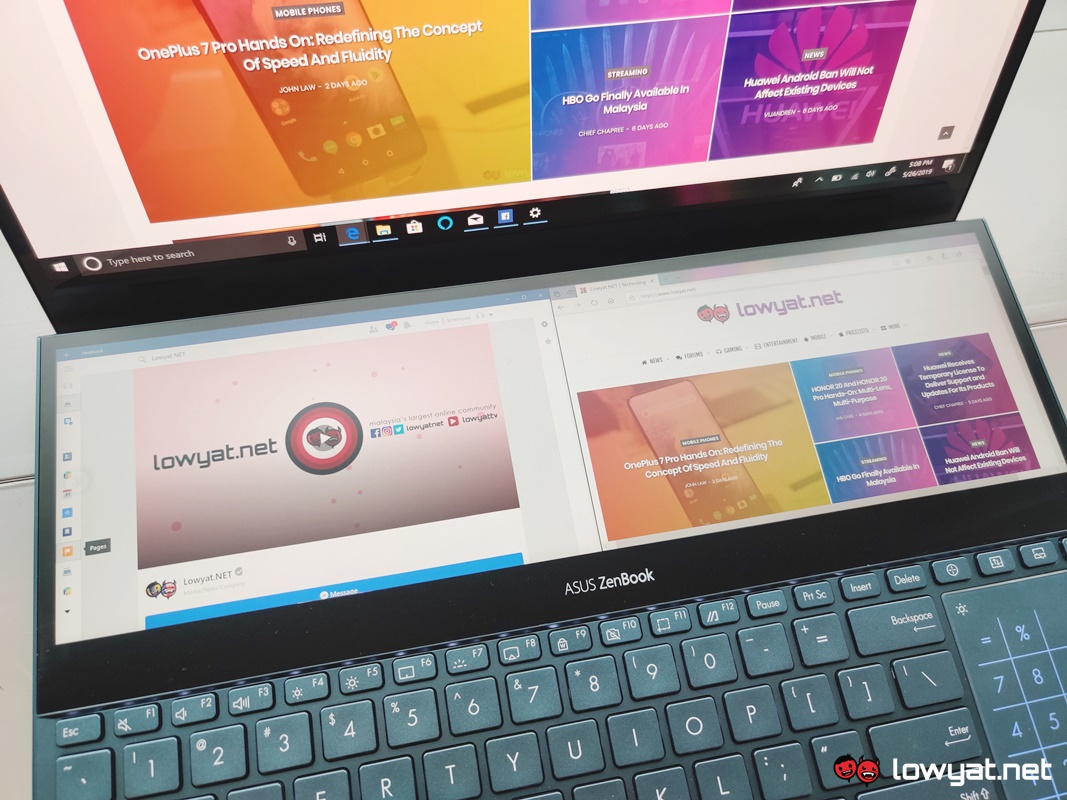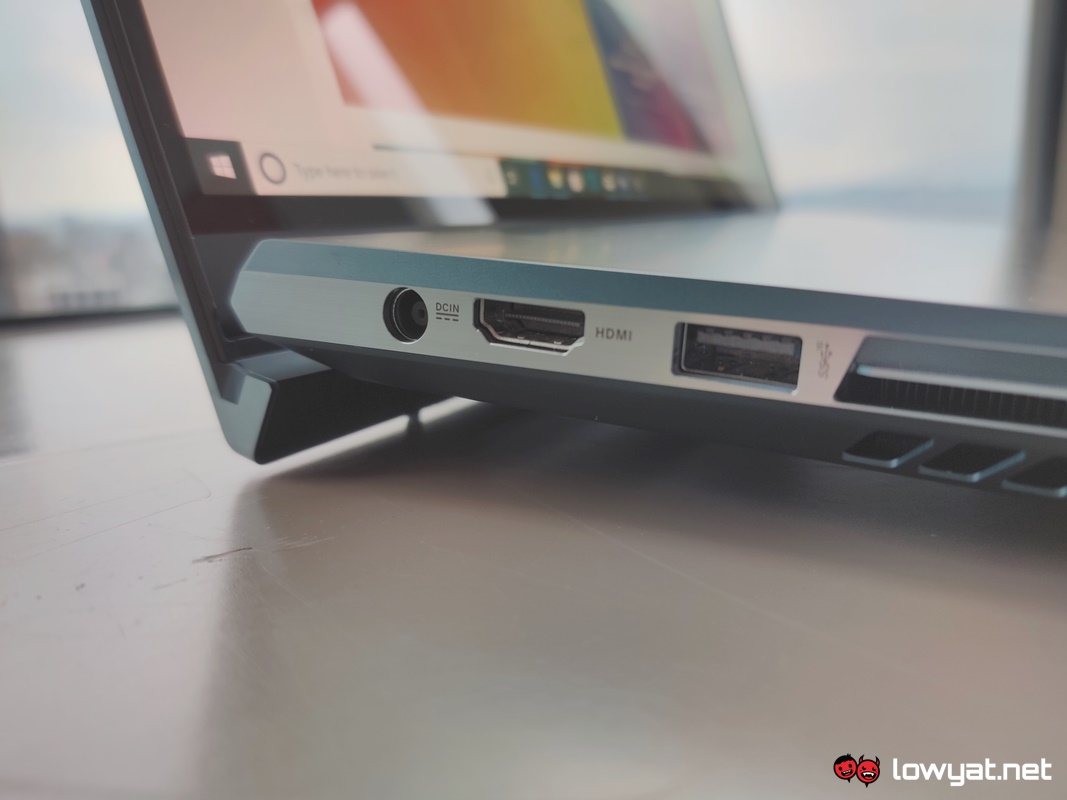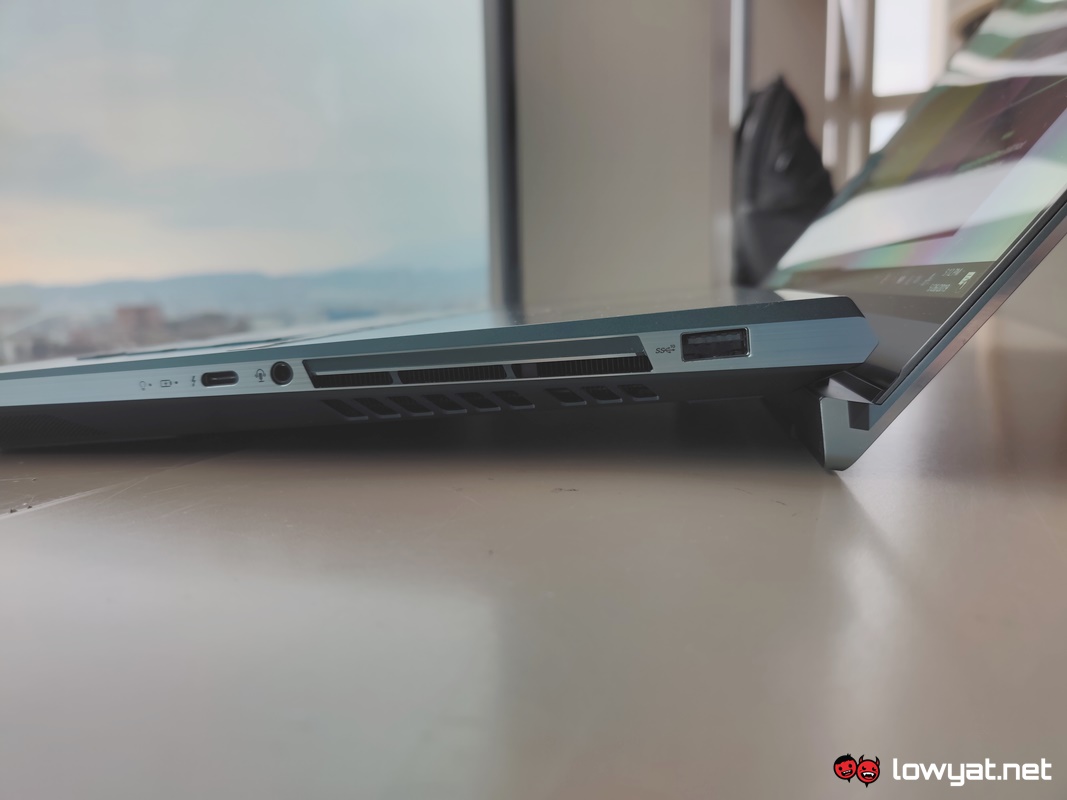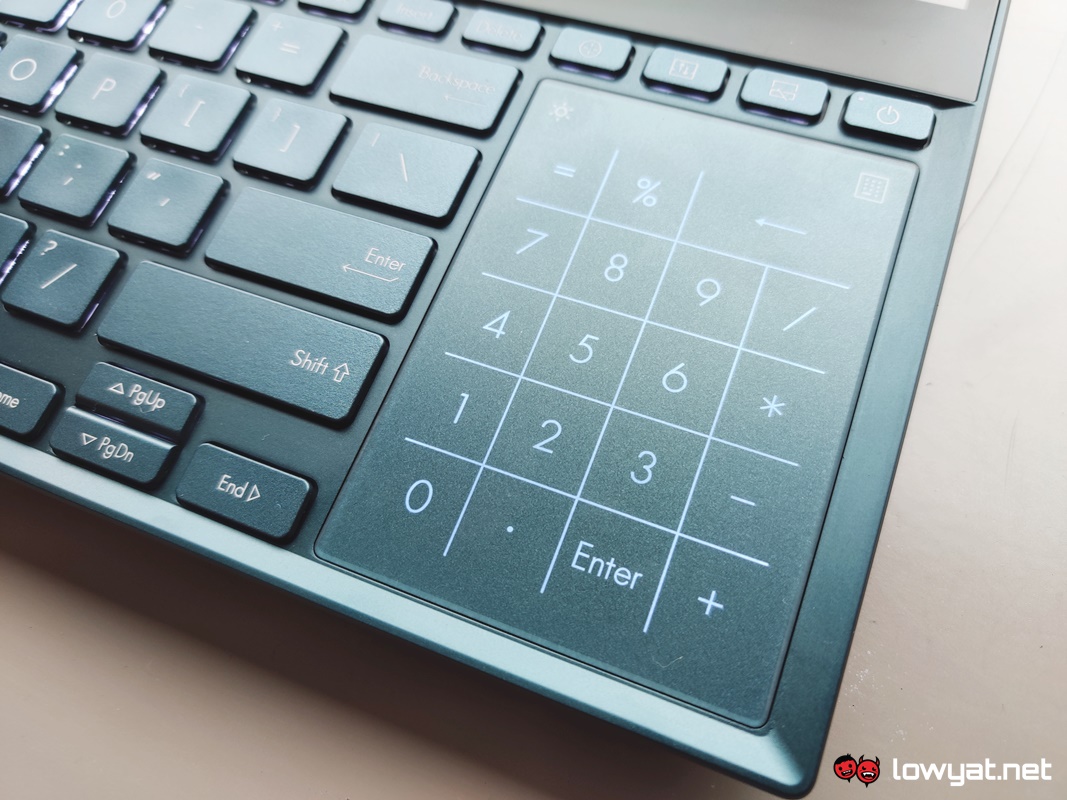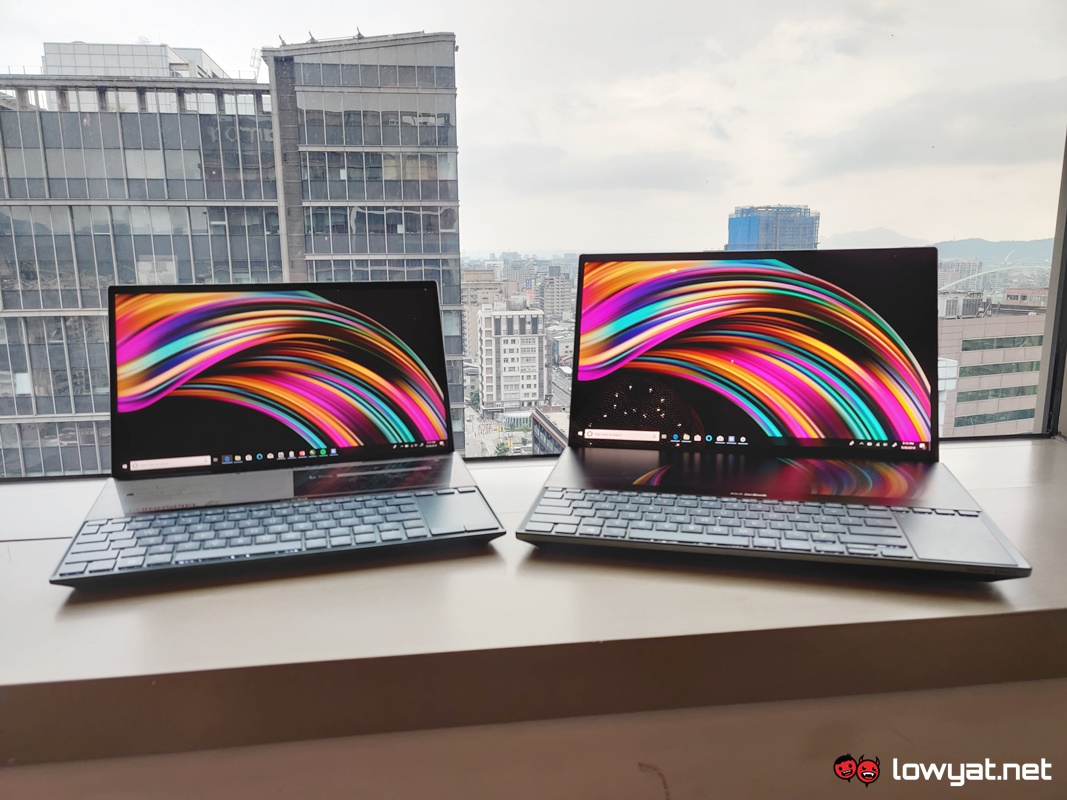The ZenBook Pro Duo’s displays comprises a 15.6-inch OLED 4K touchscreen as its main display, and a secondary matte, anti-glare 14-inch touchscreen installed at the upper of the notebook’s base. The latter being officially known as the ScreenPad Plus, since the input display is technically an oversized version of the brand’s new and improved ScreenPad 2.0. To our surprise, the ZenBook Pro Duo isn’t a slouch by any definition either. Beneath the hood, the machine is running on either a 9th generation Intel Core i7-9750H or Core i9-9980HK. To complement these high-end CPUs, it supports up to 32GB DDR4-2666MHz RAM and has an NVIDIA GeForce RTX 2060 notebook graphics installed in it. Storage is dealt with a choice of a 256GB, 512GB, or 1TB NVMe PCIe SSD.
The keyboard placement of the ZenBook Pro Duo seems to have been taken out of the design of ASUS’ gaming-centric Zephyrus lineup; it populates the bottom half of the machine’s base, complete with a trackpad tucked in at the far right. That also doubles as a numeric keypad whenever necessary. For connectivity, the ZenBook Pro Duo is fitted with support for the new Wi-Fi 6 standard, plus Bluetooth 5.0. Ports-wise, we’re looking at a machine housing one USB-C with Thunderbolt 3, two USB 3.1 Gen2 Type-A ports, a HDMI port, and one 3.5mm audio jack.
As a word of warning, the ZenBook Pro Duo is not the lightest of notebooks we’ve ever handled, weighing in at 2.5kg. It’s not the heaviest notebook in existence, but you wouldn’t want to be lugging this notebook around as your daily driver. On another note, there is also a non-Pro version of the machine. Instead of 4K displays, the ZenBook Duo features a watered down 14-inch Full HD main display, and a 12.6-inch Full HD ScreenPad Plus display. Other watered down pieces of hardware include a GeForce MX250 GPU, and 16GB of LPDDR3-2133MHz memory support. It’s also lighter than the Pro variant, albeit not by very much at 1.8kg.
Like the other devices announced today, ASUS did not specify a local pricing, but it did say that the notebooks will be available globally sometime during Q3 2019.
